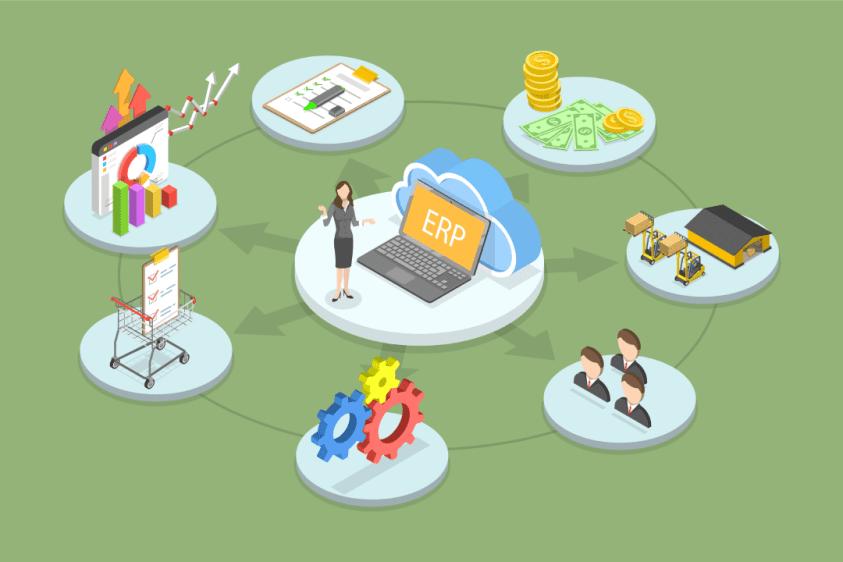Just like any relationship, communication is a vital part of running an organisation. If there’s no effective communication between departments and your existing technology solutions, you’ll quickly find things are slipping through the cracks. For many organisations, ERP is an essential component to ensure smooth sailing across the business. Like most sectors, technology has raised the ceiling on what is possible, and many are turning to support from these ERP systems.
ERP software is a tool that can centralise your organisation’s database, automate routine tasks and streamline business processes. An ERP system is uniquely positioned within your organisation, as an end-to-end solution touching many or all of the departments within.
The purpose of this tool is to optimise operations and free up time for your team to work more intuitively. This can lead to higher revenue margins, efficiency, and happiness in the team while ensuring effective communication within the organisation and its stakeholders.
Before we go more in-depth into how an ERP can benefit you, it’s important to properly define it.
What is ERP?
Enterprise Resource Planning (ERP) is a software system that helps organisations manage and integrate various business processes, such as accounting, human resources, manufacturing, supply chain, and customer relationship management. ERP aims to provide a single, centralised platform for managing all business operations, enabling organisations to streamline and optimise their processes, improve efficiency and productivity, and make better-informed decisions.
ERP systems are often modular, meaning they can be customised to fit the specific needs and requirements of different organisations. They can be deployed on-premises, in the cloud, or as a hybrid solution.
ERP systems can be complex and require significant investment in terms of both time and resources to implement and maintain. However, they offer many benefits to organisations that adopt them.
Some of the key benefits of ERP include:
- Improved data accuracy and visibility: ERP systems provide a single source of truth for business data, which helps to ensure data accuracy and consistency. This, in turn, enables organizations to make more informed decisions based on real-time data.
- Enhanced collaboration and communication: Enterprise Resource Planning systems allow different departments and teams to easily access and share information, which helps to improve collaboration and communication across the organisation.
- Increased efficiency and productivity: By automating and streamlining various business processes, ERP systems can help organisations to reduce manual errors and save time, leading to increased efficiency and productivity.
- Better decision-making: Organisations can access to real-time data and analytics, which can help managers and decision-makers to make more informed and strategic decisions.
- Enhanced security: ERP systems typically come with robust security features to help protect sensitive business data and ensure compliance with relevant regulations.
Implementing an ERP system can be a complex and time-consuming process, and it is important for organisations to carefully evaluate their needs and choose a solution that is suitable for their business. It is also essential to properly train employees on how to use the system, as it can have a significant impact on the way the organisation operates.
TalentVine is partnering with premier ERP Providers to deliver a holistic recruitment solution. Our Vendor Management Solution and Recruitment Marketplace can slot effortlessly into your team’s hiring process, seamlessly integrating into your overall organisational structure.
In Short...
Overall, Enterprise Resource Planning systems can provide significant benefits to organisations that adopt them, helping to streamline and optimise various business processes and enable better-informed decision-making.
